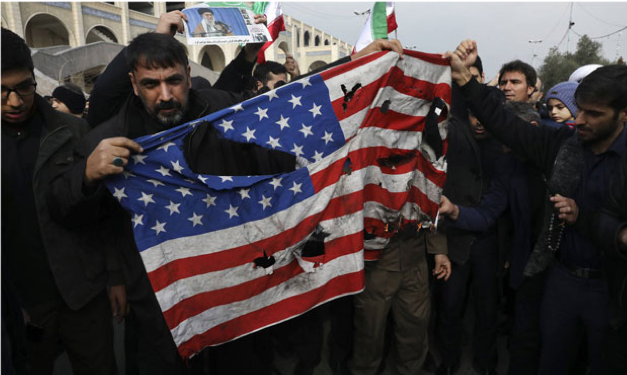The United States’ presidential election is just around the corner. Some will be watching with excitement, others with fear. Either way, Trump will be the first president in American history to run for re-election despite being formally impeached by Congress. With the Trump administration’s four year term coming to an end, there has been no shortage of politically charged social media feuds or content for SNL.

Child marriages have been an unfortunate reality throughout the course of history. Until the 20th century, the average human’s life expectancy was approximately 50 years. Therefore, in an effort to expedite reproduction and the creation of families, girls were married off as soon as they hit puberty.

According to the World Health Organization, approximately eighty percent of the injuries, illnesses, and deaths resulting from climate change are in children. This stems from the increased presence of extreme weather events resulting from human-induced climate change such as droughts, floods, storms, and heatwaves that children are significantly more vulnerable too. These events directly affect people across the globe but it is the most blameless and innocent members of our communities who will suffer the greatest. For the first time in human history, we are in a state of climate emergency, requiring us to defend first and foremost those on the front line who are likely to suffer most from the effects of climate change: children.

Canada is currently experiencing nationwide protests from Indigenous groups in opposition of the Coastal Gaslink pipeline. The pipeline is roughly 670 kilometers, spanning across British Columbia; it was designed to ease the export of natural gas in the province. Although it may seem like a good idea to some, it is creating issues with Indigenous communities as the pipeline would cut directly through their land. The Wet’suwet’en Indigenous group is directly affected by this pipeline; however, Indigenous groups across the country, specifically in Ontario, have taken action to show their support.
Amid the humanitarian crisis in Wuhan, the epicenter of the deadly outbreak, Chinese authorities are desperately resorting to extreme measures. In an effort to contain the spread of the disease, officials enforced an unprecedented quarantine of nearly 11 million citizens. Orders of house-to-house searches have been implemented and an emergency hospital was built in just ten days to tackle the outbreak. Despite the measures taken to contain the spread of this deadly disease, the number of infected cases has soared from 50 in China, to over 31,535 in more than 20 countries in the past three weeks. The death toll is even more alarming, amounting to 638.
Over the past decade, reports of rape in rural and urban areas of India have been consistently increasing. In 2012, the infamous “Nirbhaya case” – in which 23-year-old Jyoti Singh, while traveling in Delhi, was gang-raped, beaten, and killed – garnered global attention. Under public scrutiny, certain “amendments” were made by the government to laws relating to rape. Chief Justice S.A. Bobde made the promise of “effective and speedy investigation and trial.” In the following years, however, those changes proved to be inconsequential as more rape cases were being reported in 2017 than in 2012.

Last month, the Indian government under Prime Minister Narendra Modi passed the Citizenship Amendment Act (CAA), a new set of laws that would allow minority religious groups from neighbouring Afghanistan, Bangladesh and Pakistan to more easily gain Indian citizenship. While at first glance these policies seem welcoming to targeted minorities, they notably exclude Muslims, raising questions about their true motivations.

Contemporary international relations between the United States and Iran are a classic case of prioritizing inter-state objectives over human welfare. Amid rising tensions, people have become more focused on the race for superiority between Iran and the United States, rather than the resulting human suffering and violence.
Across the world, numerous countries are in the grips of raging protests that have taken to the streets. From Lebanon to Chile, citizens are fighting against economic disparity.
Across Nigeria, reports of mental health patients being mistreated in “treatment centres” – presumed medical centres dedicated to treating mental health patients – led human rights group Human Rights Watch (HRW) to visit and investigate these centres. They found that patients were being chained, denied meals and a sanitary environment, and in some cases even harmed physically as part of their treatment procedure.

